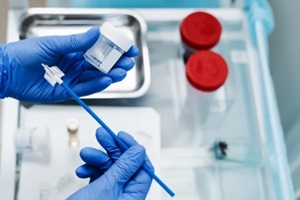 Control over if and when you get pregnant is core to living life on your terms. Whether now’s a good time to grow your family or not, reliable birth control offers peace of mind that you won’t face an unintended pregnancy before you’re ready.
Control over if and when you get pregnant is core to living life on your terms. Whether now’s a good time to grow your family or not, reliable birth control offers peace of mind that you won’t face an unintended pregnancy before you’re ready.
Contraception: More than Pregnancy Prevention
Contraception is far more than just prevention against surprise conceptions. It opens doors for you to pursue personal passions and dreams that pregnancy and child-rearing duties could delay.
The time and costs of raising children demand vast investments of money, emotion, energy, and focus for nearly two decades.
So, it’s understandable that you want to be sure a pregnancy before you’re ready won’t derail your education, career, financial security, or adventure plans.
Access to a full spectrum of contraception is essential to exercising personal reproductive autonomy in line with your conscience.
However, roadblocks in accessibility, biased counseling practices, financial barriers, and knowledge gaps in birth control options still prevent many from finding the right solutions.
The providers at Raleigh Gynecology & Wellness are providing ways to break down those obstacles through comprehensive counseling to match methods with your unique needs and priorities.
Understanding how contraceptive care upholds self-determination over family planning can empower you to seek solutions better aligned with your health status, lifestyle, and future outlook.
Pregnancy Intentions Drive Contraceptive Needs
Not every patient visits OB-GYN offices seeking reversible birth control for the same reasons. Motivations span:
- Deferring pregnancy during education or while establishing a career
- Preserving relationship intimacy unclouded by family expansion pressures
- Promoting emotional health by preventing postpartum mood disorders
- Avoiding obstetric risks from medical conditions or necessary medications
- Allocating resources to provide for current dependents adequately
- Traveling freely without worrying about prenatal care access or childcare
Personal ideology, practical circumstances, and health priorities all factor into intentions behind preventing or spacing out pregnancies. That’s why patient-centered counseling that aligns methods with individual motivations is essential to supporting autonomous decision-making.
Range of Contraceptive Options Expand Self-Determination
Thanks to six decades of contraceptive research and technological innovation, those hoping to avoid pregnancy now enjoy more choices than ever.
Each option offers unique advantages and downsides based on how frequently they must be administered, how long they last, how strong the hormones are, and how long it takes to reverse the effects.
While no single “best” method exists, the array of contraceptive possibilities today outpaces those available to previous generations. Access to the full spectrum of alternatives rather than limited selections enables you to find an optimal match for your lifestyle and priorities.
Deciding on Contraception That Fits You
 With so many variables in selecting appropriate birth control, no single method automatically outranks any other one. The providers at Raleigh Gynecology & Wellness provide recommendations based on your health profile’s unique aspects rather than taking a generalized approach.
With so many variables in selecting appropriate birth control, no single method automatically outranks any other one. The providers at Raleigh Gynecology & Wellness provide recommendations based on your health profile’s unique aspects rather than taking a generalized approach.
Tailoring contraception plans to your particular circumstances and goals requires honestly answering questions of yourself, such as:
- How well would you adapt to handling daily, weekly, or monthly administration routines? Are quarterly or annual options more compatible with your lifestyle?
- Do you hope to transition fairly quickly into actively trying to conceive once stopping contraception? If so, permanent or long-acting methods may not align with that timeline.
- How do added synthetic hormone exposures fit with your health sensitivities and risk factors? Could non-hormonal or progestin-only choices steer you away from migraines, mood swings, or blood pressure spikes?
- Does the reliability rating for “typical use” matter most for your peace of mind? Or does a method’s near “perfect use” odds suffice if you rigorously follow instructions?
- How much do side effects, such as menstrual pattern changes or temporary discomforts, concern you? Would those pose deal-breaking barriers or barely bothersome annoyances you would gladly put up with?
Only soul-searching around deeply personal questions such as these will help you clarify which category of contraception is the best option for you. No universally “superior” method exists across the board because women’s situations differ so vastly when it comes to managing fertility.
Empowered to Make Your Own Choices
Perhaps the most essential quality of contraceptive counseling involves respecting patient autonomy to decide what tradeoffs matter most.
Without passing judgment or pushing specific agendas, OB-GYN professionals should neutrally explain possibilities that are aligned with your priorities.
Ideally, that discussion addresses:
- General effectiveness ratings
- Administration regimens
- Duration details
- Typical side effect ranges
- Non-contraceptive benefits
- Underlying scientific mechanisms
- Cost considerations
- Potential safety issues
Arming yourself with a comprehensive, unbiased understanding of the full variety of options offers the best opportunity to select contraception attuned to your personal health and practical lifestyle considerations.
No universally “ideal” solution exists when women’s realities and aspirations vary enormously. However, it’s paramount that patients are empowered to make informed choices about birth control that uphold their interests.
Turn to Raleigh Gynecology & Wellness for Reproductive Autonomy
 Raleigh Gynecology & Wellness helps women of all backgrounds obtain birth control solutions, upholding their self-determined reproductive plans.
Raleigh Gynecology & Wellness helps women of all backgrounds obtain birth control solutions, upholding their self-determined reproductive plans.
We champion access to a broad spectrum of contraceptive possibilities so patients with diverse values and life goals can manage fertility freely according to their conscience.
Protecting bodily autonomy by avoiding unwilling pregnancies allows you the freedom to chart your course in this world.
So, if you’re searching for counseling on all contraception options that start from a place of respect for your life decisions, Raleigh Gynecology & Wellness is ready to help you.
Contact us today at (919) 636-6670 or book an appointment online. Let our team help you uncover the pregnancy prevention strategies aligned with your pursuit of happiness.

 When it comes to
When it comes to 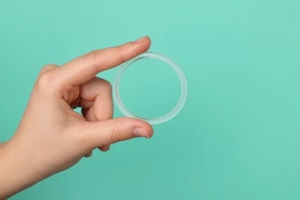 Both alternatives provide close to 100% lifelong pregnancy prevention without affecting hormones or sexual function.
Both alternatives provide close to 100% lifelong pregnancy prevention without affecting hormones or sexual function. The statistics on unintended
The statistics on unintended  Full compliance with the ACA’s contraceptive provision enables significant progress by eliminating prohibitive out-of-pocket expenses that deter the use of more reliable methods.
Full compliance with the ACA’s contraceptive provision enables significant progress by eliminating prohibitive out-of-pocket expenses that deter the use of more reliable methods. Addressing the barriers limiting access and affordability necessitates collaboration between all stakeholders – patients, providers, policymakers, and diverse community partners.
Addressing the barriers limiting access and affordability necessitates collaboration between all stakeholders – patients, providers, policymakers, and diverse community partners.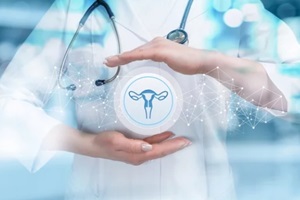 When it comes to
When it comes to 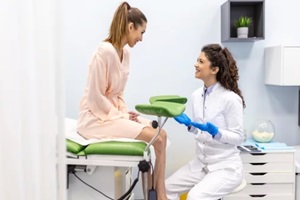 Family history of blood clots, strokes, cancers, or other hereditary conditions
Family history of blood clots, strokes, cancers, or other hereditary conditions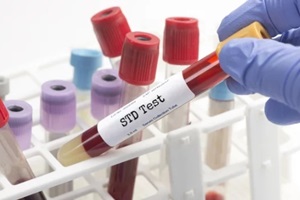 Hormonal changes from birth control could negatively (or positively) affect your libido and sexual satisfaction as well. Conditions including endometriosis or polycystic ovarian syndrome also influence contraceptive method selection.
Hormonal changes from birth control could negatively (or positively) affect your libido and sexual satisfaction as well. Conditions including endometriosis or polycystic ovarian syndrome also influence contraceptive method selection.
